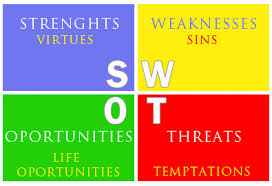For many of us, Christmas is our favorite time of the year. We exchange cards that reflect our feelings about this very special season. Many cards speak of the love, joy, and peace of Christmas. Others extend season’s greetings and happy holidays.
With Christmas comes the hope of “peace on earth and good will toward men.” We need both after 2020.
However, after the cards are sent, the tree comes down, and gift giving ceases, what will we do with Christmas? What happens to the spirit of Christmas?
The Spirit of Christmas
What exactly is “this spirit” we talk about so much this time of year? It is a shift in our usual behavior that is extended to others, especially to people we may not know personally.
It is exhibited in more generosity and kindness than normally seen. This includes but is not limited to the following.
-
- Unmerited forgiveness and grace extended to irritable neighbors and estranged relationships
- Abundant care and concern seen in special collections, gifts and other acts of human philanthropy
- Indiscriminate displays of kindness and brotherly love for others
Unfortunately, many people confuse the spirit of Christmas with commercialism we see in advertising and media. This spirit often leads to dissatisfaction, materialism, and greed. The Apostle John described this as the “lusts of the eye” (1 John 2:16).
However, we who are in Christ have crucified the flesh with its affections and lusts (Gal 5:24). As believers, we have exchanged the spirit of Christmas for the “Spirit of Christ” (Luke 4:18).
The True Source
It is also important that we understand the “True Source” of the spirit of Christmas—Jesus Christ.
For God so loved the world that He gave His only begotten son that whoever believes in Him shall not perish but shall have everlasting life (John 3:16).
Christ came that our joy might be full (John 15:11). He is our peace (Eph. 2:14).
After Christmas 2020
The COVID-19 experience has generated unbelievable acts of charity and kindness. For these, we are grateful. Extension of such graces will be critical as we move into 2021.
Financial uncertainty and loss of jobs will increase hunger and homelessness in our communities. Increases in COVID-19 deaths will require us to extend “comfort and mercies” to those in need ( 2 Cor. 1:3-4).
Organizations who are on the front line of this pandemic will need our special prayers AND financial support to provide assistance and relief.
The Spirit of Christ
The spirit of Christmas can only temporarily address the challenges we face in 2021. We need a long-term, effectual solution.
As Christ’s ambassadors (2 Cor. 5:20) we can extend “the Spirit of Christ”–His grace and love–throughout the year. This includes sharing His good news to those experiencing hopelessness and despair.
After Christmas 2020, how can we extend the spirit of Christ?










